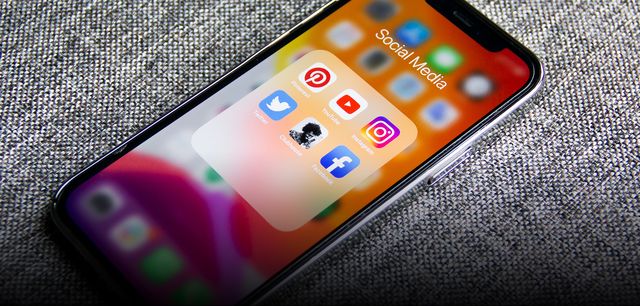16. June 2022
The social media are constantly evolving, which means that new terms or abbreviations are constantly popping up, the meaning of which is not always immediately apparent. Our glossary sheds light on the mystery.
afk
The acronym “afk” stands for “away from keyboard”. Chat or gaming partners want to communicate briefly and succinctly that they are just “away from their keyboard” for a minute and can’t respond – perhaps because the pizza delivery man or DPD driver is at the door.
AMA
AMA is the acronym for “Ask me anything”. As the name suggests, this stands for an interactive format in which a person answers questions – usually in real time: Such people might be game developers, celebrities, influencers, politicians or other people who either do or have experienced something special. The concept and name were devised on the Reddit link and discussion portal. In 2012, a deluge of user enquiries briefly brought the platform to its knees on the occasion when the then US President Barack Obama agreed to answer questions put by the netizens in an AMA session. Although the service was originally purely text-based, people can now also be asked all sorts of questions in streams and live videos.
Clickbait
“This man helped a homeless girl. What he got in return was the most beautiful gift in the world.” “Employer concerned about employees and calls the police. You’ll be amazed by the reason!” Anyone who clicks on headlines likes these only to be underwhelmed by the stories behind them has swallowed what is known as clickbait. The dramatic, emotional or lurid headlines are intended to attract people to websites to boost the number of views and, in the process, their advertising revenues. And yet, the principle behind clickbait was not invented with a mouse and modem. With headlines such as “Prince William gets a shock on his 38th birthday. Will he never see his loved ones again?” (in other words: the British prince sometimes wears glasses) the tabloid press has been selling its lucrative copy for over half a century.
Cringe
It’s in the name: it’s something that makes you cringe or shudder. In other words, what you can’t help doing when you find something very unpleasant or embarrassing. For example, when people from older generations throw internet slang around to prove just how youthful they are. As an expression of embarrassment, cringe or cringy has become established in Internet parlance in recent years and was voted Youth Word of the Year in 2021.
Doxing
Doxing (where “dox” is the short form of “documents”) refers to the targeted disclosure of identifying information about a person on the Internet: address, workplace, telephone number or other personal data. Anyone who does doxing wants to expose or intimidate the persons concerned – by using this private information to provide other users with ammunition for further attacks against them.
Flame
A flame is a provocative comment in a chat or discussion forum. It therefore follows that a flamer is a troublemaker who wants to deliberately to stir up or fuel a dispute. If many other users can be infected, a relaxed discussion can mutate into a flame war, in which the quarrelling parties insult each other or belabour each other with unobjective arguments. In the comment sections of online media, however, targeted flames are usually deleted by the moderators before they can grow into a conflagration.
© ShutterstockXOXO - a term familiar to the young social media generation. It stands for "kisses and hugs" in chats and messages.
Foodporn
Strawberries have never looked juicier, cupcakes more appetising, crusty bread crispier and chocolate muffins more tempting: If you find your mouth watering at the cleverly filtered and glamorously staged food photographs posted by your own social media friends, then you’re suffering from a case of foodporn. With foodporn, food is presented in a manner designed to be as stimulating as naked bodies in other contexts. People who are notorious for posting foodporn may be trumpeting their own superior tastes or cooking wizardry or might simply enjoy making other people’s mouths water at the prospect of things they’re just about to bite into. Unless the burger of the century has gone cold and mushy during the course of the photoshoot, that is.
POV
POV is the abbreviation for “Point of View”. POV videos are very common on Instagram and TikTok and come in different versions. They may be shot from the point of view of the makers – letting you experience spectacular ski or mountain bike descents from the first-person perspective, for instance. Either that, or the creators act as if they are not facing a camera, but a person, thereby drawing the viewers into the video as co-players. Whether you find this convincing or entertaining is a question of your own perspective.
Prank
Pranks are videos in which people are tricked, shocked or otherwise led by the nose. They are also very popular on TikTok or YouTube – especially around Halloween. In some cases, pranksters can put as much effort into their pranks as “You’ve been framed” but are less concerned about staying the right side of the limits of good taste.
Sock puppet
When users create fake accounts to give more weight to their own arguments in online discussions, they have, as it were, pulled a digital sock puppet onto their virtual hand.
Whataboutism
The term “Whataboutism” refers to a particular evasive manoeuvre in dialogue. Instead of getting a response to a critical statement, the person offering the criticism is countered with a counter-problem or a counter-question. Someone might say that: “Women should have the same professional opportunities as men.” To which the other party might reply: “But what about men who aren’t accepted as kindergarten teachers or in other women’s professions?” In other words, whataboutism compares apples with pears, albeit where those pears do look a little like apples: to relativise the other party’s statement, to put them on the back foot and thereby to distract them from the topic at issue. This is a tactic that you find again and again, especially in social media discussions on the climate crisis, the transport transition or gender equality. Click here for a few tips on how to deal with whataboutism.
XOXO
XOXO stands for “hugs and kisses” in chats and messages. This abbreviation is virtually alone in not being based on actual terms. Instead, you should view the letters as images: With sufficient imagination, the X can be interpreted as a puckered mouth – i.e. as a kiss. Think a little more laterally, and the O becomes an all-enveloping embrace. Whoever writes XOXO is actually sending a double dose of affection.




